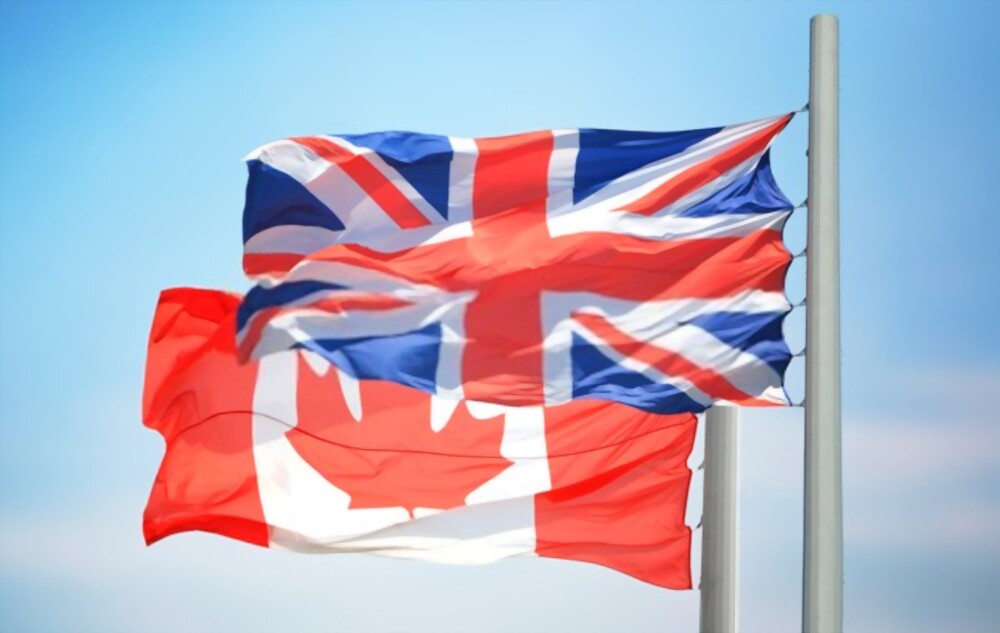If you’re planning on doing business in Canada, it’s important to be aware of the differences between Canadian English and British English. Although the two dialects are similar, there are some key distinctions that you need to know in order to avoid any embarrassing mix-ups. You can take online English classes from professional AmazingTalker’s English tutors. AmazingTalker is one of the best language learning platforms, where you can enrol language courses at affordable prices. In this blog post, we will take a look at some of the most common Differences Between Canadian English and British English.
Most common Differences Between Canadian English and British English
Contents
Pronunciation:
While there are many differences between Canadian English and British English, one of the most noticeable is in the area of pronunciation. In general, Canadian English is closer to American English than British English, which can lead to confusion for speakers of both languages. For example, the word ‘about’ is pronounced differently in Canadian English than in British English.
In Canadian English, it is pronounced as ‘uh-bout’, while in British English it is pronounced as ‘ab-owt’. This can be confusing for speakers of both languages, as they may not be able to understand each other clearly. However, with a little practice, it is possible to get used to the different pronunciations and understand each other more easily.
Vocabulary:
There are some significant differences between Canadian English and British English, particularly when it comes to vocabulary. For example, in British English, the word “biscuit” refers to what Canadians would call a “cookie”, while in Canada the word “biscuit” is used to describe a type of quick bread.
Likewise, British people use the term “sweet” to refer to dessert, while Canadians use the word “dessert” for this purpose. In addition, there are many words that have different meanings in Canadian English and British English. For instance, in Canadian English the word “pants” refers to what Britain calls “trousers”, while in British English the word “pants” means underwear.
As you can see, there can be some confusion when people from different regions use these terms! It’s important to be aware of these differences so that you can communicate clearly with people from other countries.
Spelling:
There are a few key spelling differences between Canadian English and British English. Perhaps the most noticeable difference is in the way that words ending in -our are spelled. In British English, words like “colour” and “behaviour” are spelled with a -u, whereas in Canadian English they are spelled with an -ou. There are also differences in the way that words ending in -ise/-ize are spelled.
In British English, these words are always spelled with a -se, regardless of their pronunciation. However, in Canadian English, these words are typically spelled with an -ize if they can be pronounced with an /s/ sound, as in “realize,” and with an -ise if they can be pronounced with a /z/ sound, as in “exercise.”
Finally, there are a few words that have different spellings in Canadian English and British English but are pronounced the same way. These include “travelling” (British) vs. “traveling” (Canadian), and “centre” (British) vs. “center” (Canadian). While these spelling differences may seem confusing at first, they really aren’t that difficult to remember once you get used to them.
Grammar:
Though Canadian English and British English are similar in many ways, there are also some significant differences between the two. One of the most notable differences is in the use of collective nouns.
In British English, it is perfectly acceptable to say “the government are,” whereas in Canadian English, you would always say “the government is.” Another notable difference is in the use of the present perfect tense. In British English, this tense is often used to describe an event that happened in the past but that has a connection to the present, as in “I’ve finished my work.”
However, in Canadian English, the present perfect is used less frequently, and the past simple tense is more commonly used to describe events that happened in the past. As a result of these and other differences, it is important to be aware of the different grammatical conventions when writing for a Canadian or British audience.
Last Words:
If you’re doing business in Canada, it’s important to be aware of the Differences Between Canadian English and British English. By taking the time to learn about these key distinctions, you can avoid any embarrassing mix-ups. At the same time, you’ll also be showing your Canadian colleagues and clients that you’re making an effort to understand their language and culture.
